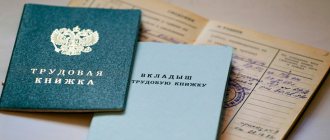Home » Inheritance » How much does it cost to refuse an inheritance from a notary
31
Along with property, the inheritance share includes the debts of the deceased. This is precisely the main reason for refusal, because as a result of its commission, the heir is freed from unnecessary obligations. But he will not be able to completely avoid costs - for issuing a waiver, a state fee and other additional payments are required, which you will learn about below.
Right of refusal
First, you should find out in what cases renunciation is possible, and what could become the basis for it.
According to Art. 1157 of the Civil Code of the Russian Federation, every disinterested successor has the right of refusal, regardless of the reason for which he is called upon to inherit. It is permissible to exercise this right even after accepting the property of the deceased.
You can refuse:
- inheritance by law, will, by right of representation and by way of hereditary transmission;
- mandatory share;
- receiving a testamentary refusal.
In this case, the heir is not required to indicate the reasons for the abdication. And they can be anything: from simple disinterest in the object of inheritance to the obvious unprofitability of receiving it due to the abundance of debts of the deceased.
When planning a relinquishment, it is important for the successor to know the following:
- The action cannot be undone.
- Registration of a waiver entails the termination of all rights to the property of the testator, without any reservations or conditions.
- By renouncing part of the inheritance, the successor also loses the remaining material benefits included in his share (in other words, selective renunciation is unacceptable).
There is an exception to the last rule. It is established in paragraph 3 of Art. 1158 of the Civil Code of the Russian Federation and is expressed as follows: the heir has the right to refuse a share or all of the property assigned to him on one basis, while retaining the opportunity to claim the inheritance on another. That is, if a potential heir is called to succession by law and will or as a result of the opening of an inheritance and in the order of hereditary transmission, he can choose one thing and renounce the other.
Example. The now deceased bequeathed an apartment to his daughter and obliged her to fulfill the testamentary refusal - to provide the opportunity for lifelong residence in the living space to his cohabitant. The daughter did not want to burden herself with such obligations and refused the inheritance under the will, since according to the law she was the only successor. She could count on all of her father’s property assets (they included more than just the apartment) even without a will.
Partial renunciation of inheritance
Acceptance of property or refusal of it can only be absolute. The assignee cannot accept part of the property and refuse the other half. For example, if the estate includes a credit car or mortgaged housing.
However, the law has a caveat. If the applicant is entitled to property on 2 different grounds , then he has the right to accept the inheritance on one of them. Consequently, he has the right to refuse the remainder of the property. Under such circumstances, we can talk about partial acceptance of the inheritance.
However, renunciation of part of the inheritance does not provide for the possibility of renunciation of debts. The share of debt obligations, proportional to the share of the accepted property, remains with the recipient anyway.
Example. The testator made a will for his daughter. The man allocated her an apartment from the common property. However, there was a condition in the will. The heiress had to provide the testator's partner with a room for lifelong residence. Another contender was the son of the testator, who lived in another region. The heiress was faced with a choice - to accept the inheritance under the will and be the sole owner of the apartment or to take legal rights and lose half of the property. Due to tense relations with her father's partner, the girl refused to enter into inheritance rights under the will. She declared her rights under the law. The son also applied. The inheritance was divided equally among the legal successors. The will of the testator regarding the cohabitant remained unfulfilled.
Types of failure
The legislation allows two options for renunciation of inheritance: absolute and directed. The consequences for the refuser will be the same, the difference is only in the further fate of his part of the inherited property.
Absolute
Abdication in this way entails an equal increase in the share of the refuser to the shares of equal heirs or, if he was the only heir of the priority line, the inheritance simply passes to the applicants next in line. In the event that another successor was nominated in the will, the part of the inheritance that was not accepted passes to him.
Thus, an heir who makes an absolute renunciation cannot control the further transfer and distribution of his share to other persons. He simply gets rid of an unnecessary burden.
Directed
You can also refuse the material benefits you are owed in favor of another person. The legatee has the right to independently choose who will receive his part of the inherited property. But it is important for him to know that the circle of potential successors in this case is limited.
In accordance with the provisions of Art. 1158 of the Civil Code of the Russian Federation, only applicants for inheritance by law or by will can become recipients of abandoned property.
These could be any of the likely successors. You can transfer your share even to someone who is not included in the priority queue - the main thing is that he belongs to at least one of them. But this does not apply to heirs by right of representation and by way of hereditary transmission. It is possible to refuse an inheritance in their favor only in the event of a call to succession (when their parent or testator died before accepting the testator’s property).
Directed renunciation cannot be performed if:
- the testator bequeathed all property to a limited circle of persons;
- according to the will, a successor has been appointed to the legatee;
- the obligatory share is renounced (it can be renounced only without specifying the persons).
Refusal of a share of inheritance in favor of other persons
The will indicates several heirs and one of them wants to refuse a share of the inheritance, then it is important to understand how the document is drawn up, whether it singles out one as the main heir, and the rest act as “insurance” in case of refusal.
Or everyone acts on an equal footing. The testator had every right to make such a decision. The essence of the above will determine the refusal of a share of the inheritance or in favor of another heir. These heirs had equal rights; then the share of the alienation would be divided equally among everyone. In another case, the heir can write an alienation in favor of another heir, but in order of priority. There are eight of them. It will not be possible to bypass the first or second and make him the heir of the fifth line .
An heir by law or will may renounce property in favor of another heir, indicating in the application specifically for the benefit of whom or without indicating this. Then the first priority principle applies, which are:
- spouse;
- children;
- adopted family members.
It happens when one of the heirs remains, a spouse who has officially renounced the inheritance or its share in favor of other persons, then the second line of relatives receives the right to inheritance. Which can be:
- grandmothers, grandfathers;
- brothers, sisters,
- aunts, uncles.
Despite the fact that all these relatives have the right to count on their share.
It must be taken into account that the refusal can only be in favor of the following persons:
- heirs, any succession of whom was not deprived of such right by the testator;
- who has the right to inheritance by kinship or transmission.
The refusal should not have any meaning or conditions.
Requirements for the refuser
Only a fully capable successor has the right to renounce his inheritance share. This category by default includes all adults and emancipated citizens.
Children under 18 years of age and persons deprived or partially limited by a court of legal capacity can make a refusal only through their legal representative - a parent, guardian or trustee. However, for objectors aged 14–18 years, there is an opportunity to independently declare their unwillingness to acquire an inheritance. Moreover, his application will become valid only after the consent of the parents or guardians.
You cannot independently renounce an inheritance share even in the event of actual loss of legal capacity (when the heir is sick, but this circumstance was not established by the court). If the refusal of such a person is certified by mistake, the interested person has the right to challenge it in court.
The procedure for making a refusal
Renunciation of inheritance is considered completed after the following procedure is completed:
- Visit to a notary. Only a notary conducting a hereditary matter is suitable for this. If it has not yet been opened, the objector must contact an authorized specialist at the last place of residence of the now deceased.
- Drawing up an application for refusal. You can write it at an appointment with a notary or bring it already prepared (both a printed form of the document and a handwritten one are acceptable).
- Payment of state fees and notary services.
- Certificate of refusal. The paper is stamped and signed by the heir and the notary.
- Registration of the document. Information about the refusal is entered into the Unified Notary Information System. This is done so that there is no confusion in the future, and the refusal document is not accidentally lost in the archive.
After certification, the document enters into legal force and can no longer be canceled, either by the former heir or anyone else. An exception is the obvious invalidity of the document, for example, when the abdication was not the result of the free will of the successor, but a forced measure in response to blackmail, threats or other illegal actions of third parties.
Also, the basis for declaring a refusal illegal may be the incapacity or limited legal capacity of the refuser. In this case, the notary does not have the right to certify the application. But, if this does happen, it completely loses its legal significance after the interested party presents a document limiting the legal capacity of the renounced heir.
Statement
The waiver must include the following information:
- Name and address of the refuser.
- Location and full name of the notary or name of the notary office.
- The basis for calling the applicant to inherit.
- The essence of the statement. Here it is necessary to indicate the desire to renounce and clarify the basis for the inheritance (if a successor is called simultaneously by law and will, etc.).
- Full name and grounds for the emergence of inheritance rights of persons in whose favor the refusal is carried out (if it is directed).
- The applicant's awareness of the consequences of his actions.
- Date of submission of the waiver.
If the application is submitted on behalf of the successor by his legal representative or proxy, information about him and the grounds on which he exercises his powers is additionally indicated.
Documentation
When submitting an application, the applicant must present an identity card and a document confirming his inheritance rights - a will or a certificate of kinship/marriage with the testator.
If the refusal is made in favor of another person, you must also provide papers establishing his affiliation with the potential (or actual) successors.
The representative replaces the heir's identity card with his own and, in addition to the above documents, submits to the notary a power of attorney or a certificate indicating the status of the legal representative:
- about the birth of a minor conscientious objector, if he is his parent;
- on the appointment of an adult heir who is not fully capable as a guardian/trustee (a court decision to deprive/limit the latter’s legal capacity may also be required).
A waiver on behalf of an incapacitated or partially capable person must be accompanied by permission from the guardianship and trusteeship authority. Moreover, the renunciation in this case should not be made in favor of the guardian or parent.
Deadlines
The heirs are given six months to complete the refusal. The period begins from the date of death of the testator and can only be restored if the successor actually entered into the inheritance. To do this, he will need to go to court and prove that the deadline was missed for good reasons.
Serving options
The necessary documents and application can be sent to the notary in the following ways:
- Personally a refuser.
- By mail. The package of papers should be issued in a valuable letter (this way you can reliably record its contents and find out about the day of delivery to the addressee). In this case, the signature on the application must be notarized.
- Through a trusted person. This is possible only after the selected person has been given written authority to make a refusal.
How much does a refusal cost?
Costs for renunciation include two types of payments - state fees and fees for notary services of a legal and technical nature.
State duty
In case of refusal, the state fee is charged only for certifying the signature of the heir. According to paragraphs. 21 clause 1 art. 333.24 of the Tax Code of the Russian Federation, certification of the authenticity of a signature costs 100 rubles.
If the objector acts through a proxy, he will also have to pay for the registration of his written authorization - 200 rubles (clause 1, clause 1, article 333.23 of the Tax Code of the Russian Federation).
UPTH
When certifying a waiver, the notary performs auxiliary actions, without which, in the opinion of the Federal Notary Chamber, the procedure cannot be completed. These activities are classified as legal and technical services (LTS).
Tariffs for UPTH are established and reviewed annually by the notary chamber of the subject. In 2021, for Muscovites, the costs under this item will be 1,000 rubles for a certificate of refusal and 1,200 rubles for issuing a power of attorney (if necessary).
Privileges
According to Art. 338.38 of the Tax Code of the Russian Federation, disabled people of groups I and II are exempt from paying state duty by 50%. And legal and technical services are not charged for:
- veterans and disabled people of the Great Patriotic War;
- prisoners of fascist camps;
- disabled people of group I (by 50%).
How to save money
There is a less troublesome replacement for a notarized refusal - non-acceptance of the inheritance.
To forfeit the rights to the material wealth of the deceased, the heir does not need to do anything. It is enough to ignore the fact of opening an inheritance and miss the period allotted for its acquisition. This will be enough to perform an indirect refusal.
Indirect renunciation (non-acceptance) is impossible if the successor has already entered into inheritance - actually or formally - or wants to renounce the due share in favor of another person.
Before abandoning an inheritance, it is important to carefully analyze the profitability of this decision, because sometimes seemingly unprofitable property, if used (and executed) correctly, can become a “gold mine” and cover all investments in full in the future.
And even if the intention to refuse did not arise from material considerations, there is no need to rush to get its certificate. Before signing, the application must be carefully checked for duplicate instructions or inaccuracies. They can lead to dire consequences, which cannot be changed after signing.
If you have any questions and would like to receive a free consultation, write to our lawyers. You can do this at any time - the answer will not take long to arrive, regardless of the time and day of your request.
FREE CONSULTATIONS are available for you! If you want to solve exactly your problem, then
:
- describe your situation to a lawyer in an online chat;
- write a question in the form below;
- call Moscow and Moscow region
- call St. Petersburg and region
Save or share the link on social networks
- FREE for a lawyer!
Write your question, our lawyer will prepare an answer for FREE and call you back in 5 minutes.
By submitting data you agree to the Consent to PD processing, PD Processing Policy and User Agreement
Useful information on the topic
20
Does a common-law wife have the right to inherit after the death of her common-law husband?
There is an opinion that the concept of “civil marriage” implies an unregistered...
31
How to challenge a will for an apartment?
According to Article 62 of the Civil Code of the Russian Federation (Civil Code of the Russian Federation), citizens...
28
How to draw up a will for an apartment
The legislation of the Russian Federation establishes the right of every capable citizen to perform posthumous...
55
How to properly draw up and write a will
The provisions on the will are contained in the third chapter of the Civil Code of the Russian Federation. According to…
100
Heirs of the first stage
The Civil Code of the Russian Federation defines two options for inheritance: by will and...
6
Limitation period for inheritance cases
Some people mistakenly correlate the statute of limitations in inheritance cases with...
Customer Reviews
Thanks to Pavlyuchenko A.V. from Radhuan M. Dear Pavlyuchenko Alexander Viktorovich. Let me express my sincere gratitude for the qualified legal assistance provided. Thanks to your professionalism, I was able to achieve a decision in my favor. I wish you further prosperity and professionalism.
Radhuan Mohamed 06/08/2018
Gratitude from gr. Tiuntsova G. A. I asked for advice from your “Legal Agency of St. Petersburg” - regarding deception by one person who presented himself as an employee of Rospotrebnadzor of the Krasnoselsky district, Novichkov A. A. Offered me a service - before the New Year, go on a tourist trade union voucher to Moscow on the Sapsan railway transport. I refused due to the manipulation of the placement of seats - in different trains, and then by car. Lawyer Sergei Vyacheslavovich Mavrichev handled this case and provided consultations. I thank you for such a sensitive and attentive attitude in office work, which was denied at the 58th police department of the Vyborg district, under Art. 24, 144, 145 of the Code of Criminal Procedure of the Russian Federation, I now have the right to appeal the conclusion and will send an application for further investigation to the district prosecutor's office.
Tiuntsov G. A.
8
From Pravikovskaya N.B. I express my gratitude to the staff of the legal consultation: Andrei Valerievich and Dmitry Konstantinovich, who helped me resolve the unpleasant situation with the Pyaterochka store.
The issue was resolved in my favor without delay and quickly. They apologized to me and I received monetary compensation, all without lengthy litigation. Once again, thank you very much!
Gratitude from Busygin A.I. I express my gratitude to Vasily Anatolyevich Kavalyauskas for the qualified management of my case, competent advice and justification for the decision, which led to compensation of the stated claims.
Sincerely, Busygin Alexander Ivanovich
26.12.2017
Thanks to Kavaliauskas V.A. I would like to express my deep gratitude to Vasily Anatolyevich, an employee of your company, for his enormous support and competent defense of my case. And also for having a good attitude towards people. I will recommend your organization to all my friends and family.
I wish you success and prosperity,
05/14/2018
Gratitude from Gordeeva E.S. I express my special gratitude to Sergei Vyacheslavovich for his highly competent and detailed consultation on the issue of the employment contract.
Doctor of Philological Sciences, Gordeeva E.S. 12/01/2018
Gratitude I express my deep gratitude to lawyer Konstantin Vasilyevich for his attentive, kind, and, most importantly, very clear and competent explanation of my situation. It's nice to know that the world is not without good people. I wish Konstantin Vasilyevich good health, success in everything, prosperity, good, grateful clients and all the best. Sincerely.
Review by Irina D. I thank the Legal Agency of St. Petersburg for the warm, sincere welcome and the detailed, competent, thorough, conscientious legal position of lawyer Andrei Valerievich.
Gratitude to Solovyov I would like to express my deepest gratitude and appreciation to Konstantin Vasilievich Solovyov for his attentive attitude and very competent consultation. And if I ever need legal support, I will definitely turn to him. I would also like to mention Daria Valentinovna Kutuzova, who greeted me with a smile and answered some of my questions. I wish the company success, further prosperity, and more clients.
Thanks from Radhuan M.R. Dear Kavaliauskas Vasily Anatolievich. Let me express my sincere gratitude for the qualified legal assistance provided. Thanks to your professionalism, I was able to achieve a decision in my favor. I wish you further prosperity and professionalism.
Radhuan M.R. 06/08/2018







